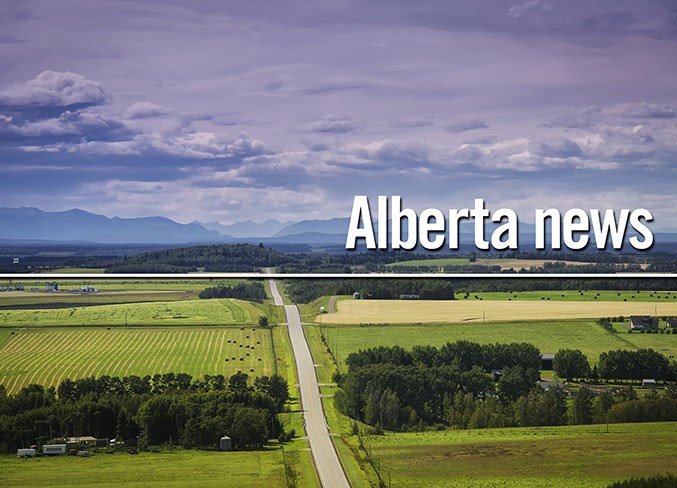COVID-19 numbers in rural Alberta have dropped dramatically since the peak of the fourth wave in the fall, but local mayors are saying their communities are still divided over the virus.
In Rimbey Alta., mayor Rick Pankiw said COVID-19 cases have dropped dramatically since the fall, going from around 122 cases at the peak down to just four active cases currently.
“I've been baffled by it … so I really don't know why,” Pankiw said.
In Rimbey, like much of rural Alberta, vaccination rates have increased in the community, which likely impacted COVID-19 numbers, Pankiw said.
At the end of September, in Rimbey, for everyone who was eligible, 58.1 per cent had their first dose. In the community, 52.2 per cent of eligible residents had received two doses.
Currently in Rimbey, some 68.5 per cent of residents over the age of 12 have had their first dose, and some 64.3 per cent have been fully vaccinated.
Pankiw said they currently have no outbreaks in the community and the town hasn’t implemented the restriction exemption program in municipally-run buildings. Businesses in town have chosen to implement the program on their own.
Although vaccinations have increased and cases have trended downward, Pankiw said he believes people in Rimbey are still torn about COVID-19 and have the same attitudes they had about the virus when the fourth wave peaked.
“We still have a large number of people here who are very, very against it,” Pankiw said.
In central Alberta, Dr. Daniel Nagase was relieved of his duties from Alberta Health Services (AHS) earlier this year after he was working in a Rimbey health facility and administered three patients ivermectin, a livestock deworming medication, to treat COVID-19. Nagase has support in the central Alberta area and created content with the owners of The Whistlestop Café, a restaurant in Mirror, Alta., which has frequently defied COVID-19 health regulations.
In the town of Slave Lake, mayor Tyler Warman said vaccination rates in their community have increased by 25 to 30 per cent, which has helped curb numbers in the northern Alberta town.
Warman said residents are getting vaccinated because of the new rules and regulations that were introduced in September.
“I think it is largely because the government hasn't made it easy to go on in life,” Warman said.
But there is still a subset of the population who refuses to get the shot.
“I think some [people] relented and some begrudgingly did it and some I think are more entrenched in not [getting vaccinated] than they ever have [been],” Warman said.
Anyone who wanted to have a return to some normalcy in their lives got the shot, Warman said, and the new rules were a good push for those who had been procrastinating over getting the vaccine.
In his community, around 90 per cent of businesses implemented the restriction exemption program, which gives more motivation for residents to get vaccinated, Warman said.
But while vaccination numbers have gone up, Warman said community members are reluctant to go get tested for the virus if they have symptoms.
Many people who feel ill will stay home, Warman said, rather than go out and get a test confirming they have the virus.
Rural Albertans continue to remain frustrated with the government as the new rules roll out, Warman said, with many left wondering why thousands of people can pack into hockey arenas to see professional teams play while in their small community they are limited on who they can host in their houses.
“I think the level of trust for the government has never ever been so low,” Warman said.
Across Alberta some 89 per cent of the population over the age of 12 has had their first dose while 84.5 per cent are fully vaccinated.
Between Nov. 15 and Nov. 28, the r-value, the number of people a person infected with COVID-19 spreads the virus to, dropped to 0.88 across the province.
Rural Alberta was lower than the two major urban centres, with an r-value of 0.80, with Edmonton sitting at 0.95 and Calgary at 0.90.



